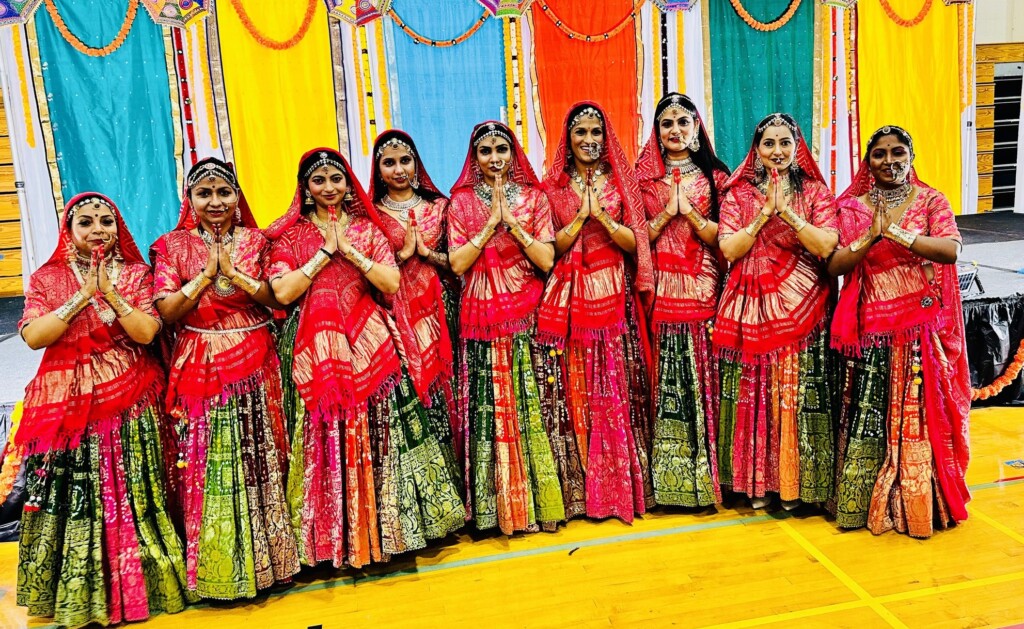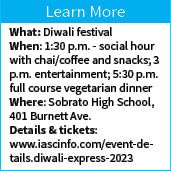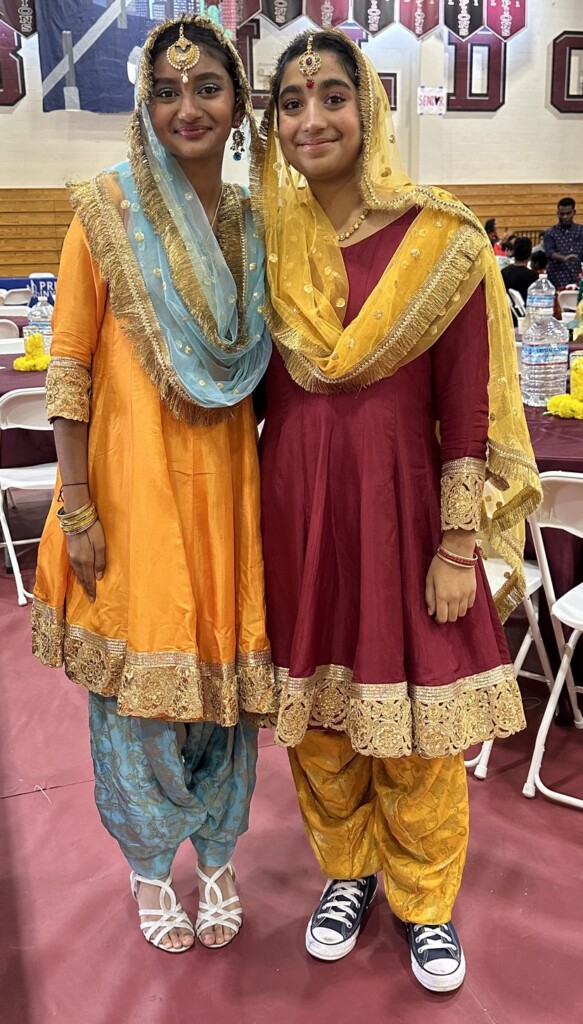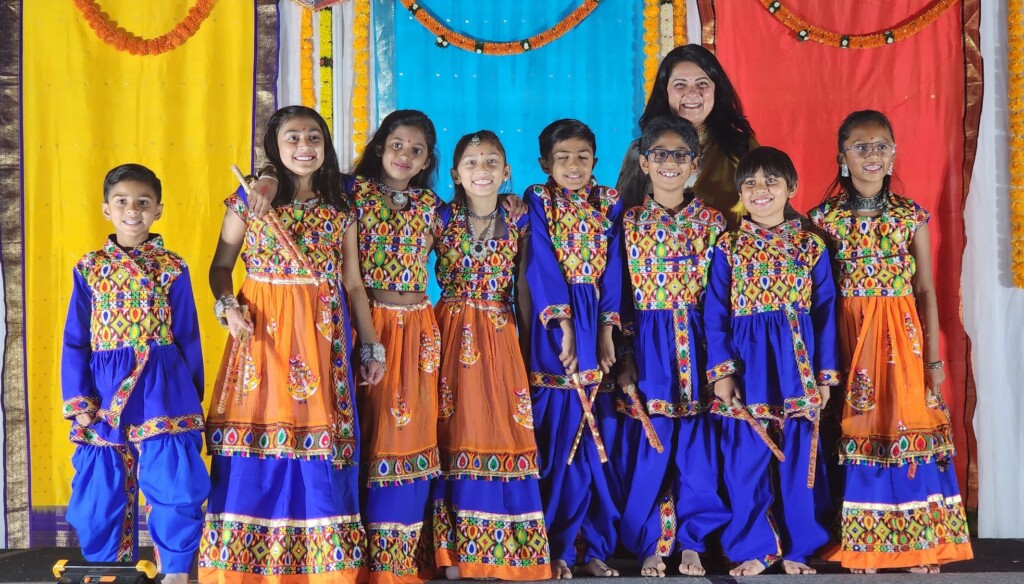Main Story: IASC’s ‘Diwali Express’ is a multicultural Indian extravaganza
South Valley community invited to festival held Sunday Nov. 19 at Sobrato
![]()

Photo courtesy Indian Association of South Santa Clara County
One of the many acts that performed at last year’s Diwali festival.
By Calvin Nuttall
South Valley residents will light up the night when the “Diwali Express” comes roaring into Morgan Hill. The Indian Association of South Santa Clara County’s annual festival promises an evening brimming with culture, cuisine, and community.
 The celebration will transform the gym at Ann Sobrato High School into a “multicultural extravaganza,” said IASC President Monica Iyer. First celebrated in 1994, the IASC’s annual Diwali celebration has grown from a humble gathering of families into a spectacular production welcoming everyone.
The celebration will transform the gym at Ann Sobrato High School into a “multicultural extravaganza,” said IASC President Monica Iyer. First celebrated in 1994, the IASC’s annual Diwali celebration has grown from a humble gathering of families into a spectacular production welcoming everyone.
“This year, we hope to up the ante even a little bit more,” Iyer said. “When I joined in 2014, we were struggling to at least sell 200 tickets. This year, we’re looking at crossing 500.”
The festivities begin with 90 minutes set aside for socializing, fueled by chai tea and snacks. This is followed by the entertainment, a “virtual train” journey through India. Finally, celebrants will be served a full-course vegetarian dinner.
Managing the event has been a balancing act between its growing popularity and a desire for the celebration to have a comfortable social vibe, Iyer said.
“We want to keep it a little bit small so we can still have a family atmosphere,” she said. “Everyone knows everyone. That’s the reason we have the hour and a half in the beginning for people to socialize.”
The virtual tour of India will include 11 separate acts, mostly cultural dances with one vocal performance. Each is themed based on a specific region of India, represented by a train station found there.

Two young women are dressed in their finest at last year’s celebration. Photo courtesy IASC
“These are iconic train stations of India,” Iyer said. “India has one of the most intricate rail networks in the world. They connect every corner and village. It is a unifying thing. If you want to go anywhere in India, the railways will take you there.”
Atmika Singh, a board member and the cultural coordinator, moved to the U.S. before air travel was a common occurrence in India.
“When we look back at our childhoods, every trip we did was by train,” she said. “It is a very dear thing to most Indians our age.”
Though Diwali falls on Sunday Nov. 12, the festival is actually a weeks-long celebration that starts months prior. Like other holidays based on the Hindu calendar, it falls on a different day every year, usually somewhere between mid-October and mid-November.
“Regionally, people celebrate Diwali for many reasons,” Singh said. “It is based loosely on a number of different mythological stories, including the Hindu epic (poem) Ramayana. It is also the New Year celebration, as it is the beginning of the calendar year used in some parts of India.”
Although its roots are in Hindu mythology, Diwali is celebrated by people of any religion in India. Iyer likened its popularity to Christmas. It has become so cosmopolitan it is celebrated ubiquitously, irrespective of faith, as a means of bringing people together.
“Because we had a two-year break due to COVID, I think everyone has realized how important it is for us to come together,” Iyer said. “The sense of belonging to something is very important for everyone.”
The preparations for this year’s celebrations began in July. The entertainment will include at least 120 volunteer performers who have been practicing their routines for months.
“They rehearse at the amphitheater, or in someone’s garage, or living room,” she said. “And they make friends that way, because they are spending so much time together for so many months. That is one of the reasons why we want to continue doing this.”
Many of the performers are children, whose busy school schedules complicate the logistics of organizing rehearsals. To manage this, the IASC leans heavily on support from the community, especially parents.
“Our parents are the real troopers,” Singh said. “They ferry the kids to practices and show up week after week starting at the beginning of September. We have had 10 or 11 practices going on simultaneously for the past month or so. We are only able to do this because the parents put so much time and effort into this.”
Seeing these kids forging bonds with one another and engaging with their culture is what makes all of the effort worthwhile, Singh said.
“I am choreographing a group of 10-year-old girls, and I’m really excited to see them onstage,” she said. “It’s really fun, I have a really nice group of girls. They all love dancing, and they’re so enthusiastic. We just got our costumes custom-stitched in India. They’re so excited to start wearing them.”

Photo courtesy IASC
The other major challenge of putting on the event, Singh said, is raising the money required. As a nonprofit, the IASC relies almost entirely on its sponsors. Diwali is their only ticketed event of the year.
“We don’t have any membership fees. We don’t charge any dues,” she said. “All our clubs, all our events, are free.”
For Iyer, the excitement that brings her back year after year to help make this celebration happen is rooted in the community it helps to solidify.
“My happiest moment is when I get on stage as the president of IASC, and I see everyone there,” she said. “It just makes me happy to be a part of this family. A lot of us don’t have any other family support here. For me, my family lives in New Jersey. Nevertheless, when I fractured my leg four years ago, there was someone coming by every single day. I call them my IASC family because that’s what we really are — a family.”
When Singh moved to Morgan Hill more than eight years ago, she felt isolated. Now, she heads multiple community programs and is one of the IASC’s most involved leaders, Iyer said.
“It was through the IASC that I found a community of people, and I feel at home now,” Singh said. “I don’t think we would ever consider leaving. That’s the thing about IASC, it brings people together, it helps you find your tribe.”
Calvin Nuttall is a Morgan Hill-based freelance reporter and columnist.

